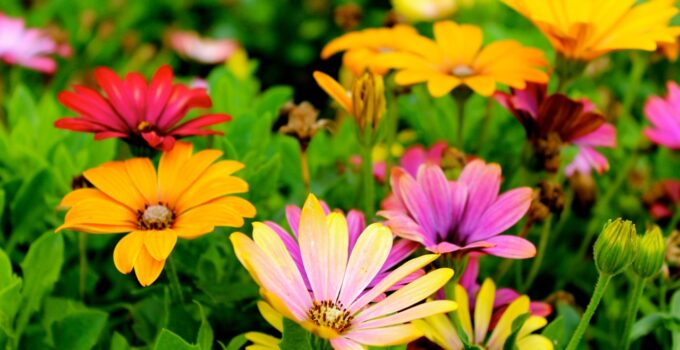You want your backyard to be a little slice of paradise, but sometimes, it’s just a source of frustration. Don’t worry — it doesn’t have to stay that way. Read this to see what you can do to fix your biggest backyard problems this year.
Your Vegetables Aren’t Growing
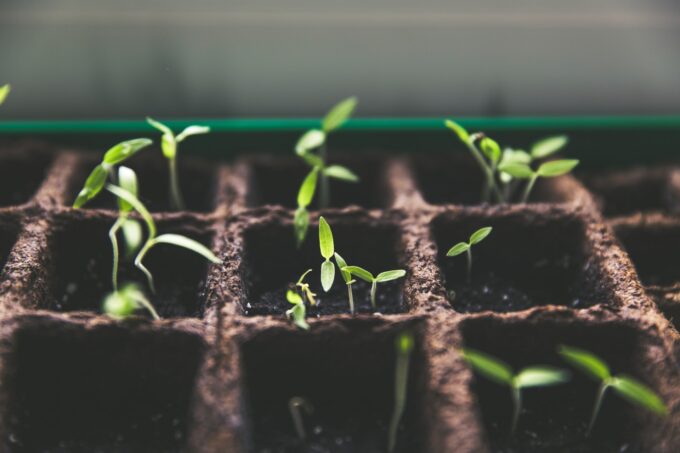
Source: unsplash.com
Your vegetable patch isn’t producing the great harvest that you’ve been hoping for. It either produces small, misshapen vegetables, or it doesn’t produce anything at all. Why is that?
The root cause of your vegetable problem is probably pollination. If your plants aren’t getting pollinated properly, they’re not going to grow very much — if at all. This is a common problem for plants like watermelons, pumpkins, cucumbers and squashes.
One simple solution to this problem is to bring more pollinators into your backyard. Pollinators include bees, butterflies, hummingbirds and bats. How can you do that?
- Plant native wildflowers in a variety of bright colours in your backyard.
- Add a hummingbird feeder, butterfly feeder, mason bee house or bat house into your backyard.
- Avoid using pesticides.
Another solution is to try hand pollination — this technique lets you give your vegetables a helping hand in the pollination process. All you need is a small (unused) paintbrush or cotton swab. Rub the top of the brush/swab on the stamen of the plant’s “male” flower. The “male” flower should have a light dusting of pollen in it. Then rub your pollen-covered brush/swab inside the “female” flower. Female flowers tend to have shorter stems with bulges on the bottom.
Finally, you could add more self-pollinating plants to your vegetable patch to increase your chances of a good yield this year. Some self-pollinating plants are beans, carrots, cauliflower, corn, onions and peppers.
Critters Are Eating Your Vegetables
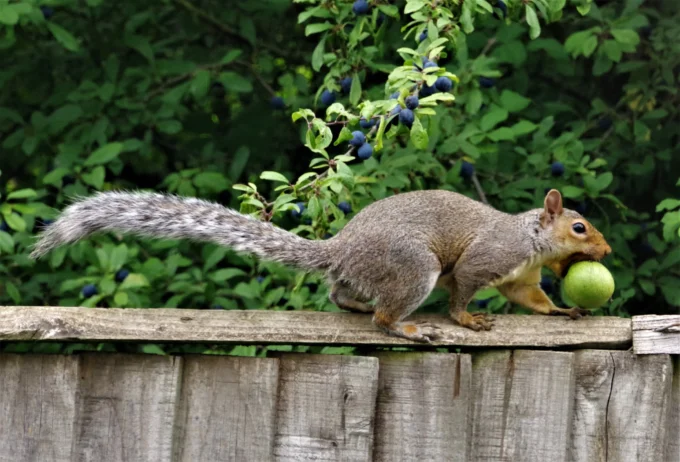
Source: mercurynews.com
Maybe your vegetable garden is doing great! You always have a patch full of veggies, ready to harvest by summer and fall, but you never get a chance to eat any of it because critters get to it first. Raccoons, rabbits, squirrels, birds and other animals seem to eat everything that you grow, leaving you with nothing.
So, what can you do? You can add a barrier fence around your vegetable patch. You can install motion-detecting lights. Or you can try repelling animals with unpleasant scents, like cayenne pepper or coyote urine — the smell of a predator should keep them at bay.
The best way to keep critters away is with a greenhouse. They won’t have any access to your vegetables, so they’ll be free to grow until it’s time to harvest them. You can finally eat what you’ve grown!
A greenhouse will bring more benefits than keeping hungry animals away:
- It will protect your vegetables from rough weather.
- It will protect your vegetables from sudden drops in temperature. Gardeners often stress about planting times because a late-spring frost could destroy their crops before they’ve had a chance to grow.
- It will protect your vegetables from aggressive, invasive plants. For example, bindweed will wind around your plants and sabotage their growth.
- It will keep pest infestations like aphids, beetles and slugs away from your plants.
How can you get started on a greenhouse? Consult the experts at FlorianSunrooms.ca and see how you can put the process in motion. After your consultation, you can draft your architectural plans and discuss details like types of glass, ridge vents, heating/cooling features and more, all so you can create the perfect sanctuary for your vegetables.
Mosquitoes Are Everywhere
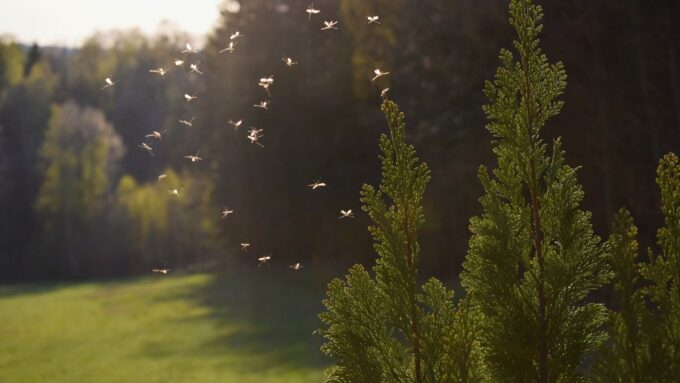
Source: thisoldhouse.com
Anytime you decide to sit out in your yard and enjoy the fresh air, you’re surrounded by mosquitoes. Within five minutes, you’re back inside, scratching at dozens of bites.
What’s the solution to this problem? Mosquitoes tend to hang out in areas that are damp — this is because they lay their eggs in standing water. So, one way to get rid of mosquitoes is to make sure your yard isn’t a good breeding ground:
- Don’t leave water sitting in buckets, kiddie pools or planter discs. Empty them out.
- Clean out your gutters.
- Adjust your gutter system’s downspout so that it’s not causing water to pool around your foundation.
- Plant strategic rain gardens to soak up rainwater quickly.
What about water features? Water features may have standing water, but that doesn’t mean you have to remove them from your backyard to avoid mosquitoes. You can buy microbial larvicide to stop mosquitoes from breeding in your birdbaths, rain barrels, ponds and other water features. The bacterium Bti (Bacillus thuringiensis subspecies israeliensis) only targets mosquito larvae, leaving anything else in the water completely unharmed.
Another solution for keeping mosquitoes out of your yard is to fill it with plants mosquitoes hate, like lavender, rosemary and mint. These additions can be just as effective at warding off mosquitoes as DEET, and they’ll definitely smell a lot better than bug spray.
Finally, you should consider adding a sunroom to your house. A sunroom is the perfect blend of an indoor and outdoor space. You can soak in the sunshine and take in the view without having to worry about bugs ruining your relaxation.
Yellow Patches of Grass
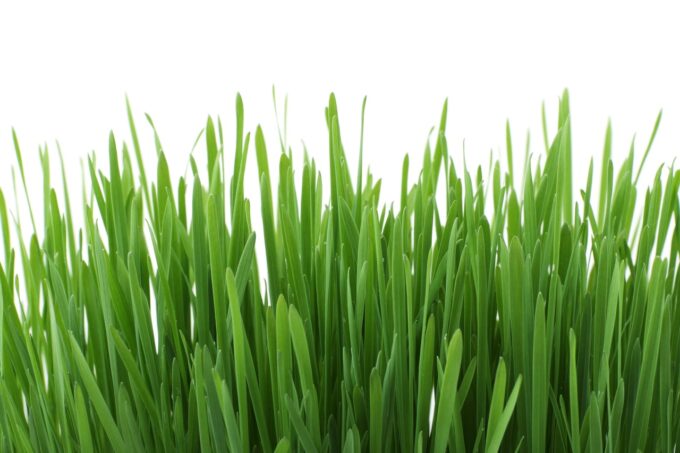
Source: pexels.com
You want your grassy lawn to look lush and green. So, why does your lawn look patchy and yellow?
If you have a dog, then they could be to blame. Dog urine contains high concentrations of nitrogen and salt, which can kill the grass it touches and turn it yellow — this is sometimes called “lawn burn.” You will have to dig up these patches and reseed them to get the grass to come back.
To avoid this problem all over again, make a habit of rinsing off the area with a hose once your dog is done urinating. This should neutralize the effects of the nitrogen and salt. You can also create a zone of clover or woodchips where your dog can urinate without consequence.
If you don’t have a dog, then your lawn can develop yellow patches from watering (too much or not enough). Adjust your watering schedule and amount and see whether the results change.
Finally, if your pet or your watering habits aren’t affecting your lawn, the yellow patches of grass are likely caused by a lack of nitrogen in the soil. There is a simple solution to this problem: you need to fertilize your lawn. Soon enough, it will be lush and green again.
All of these solutions will make your backyard much better. Now you can actually spend your time enjoying your backyard — not resenting it.

